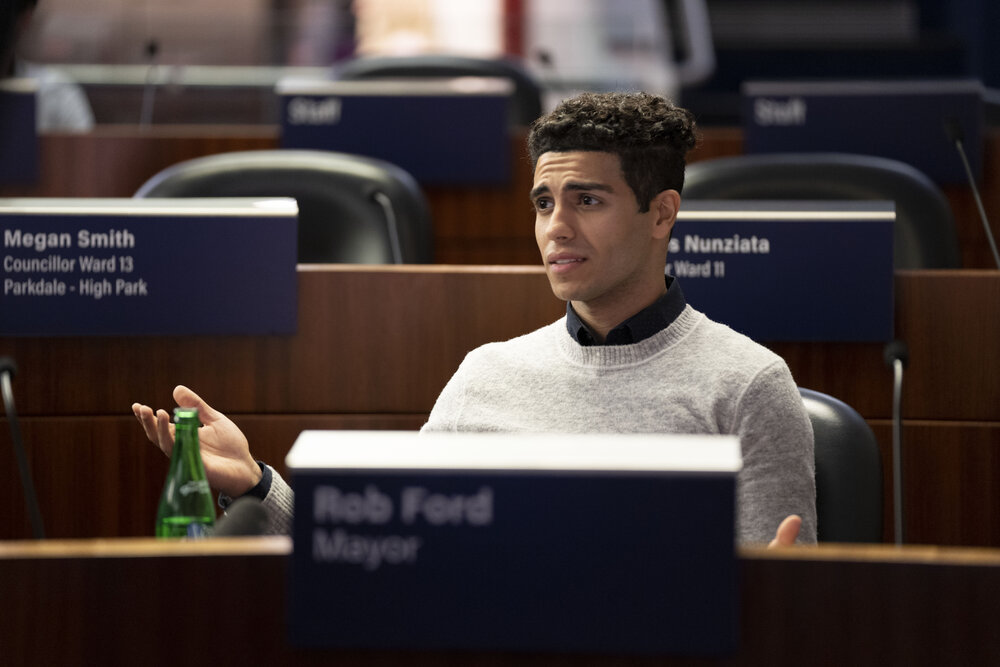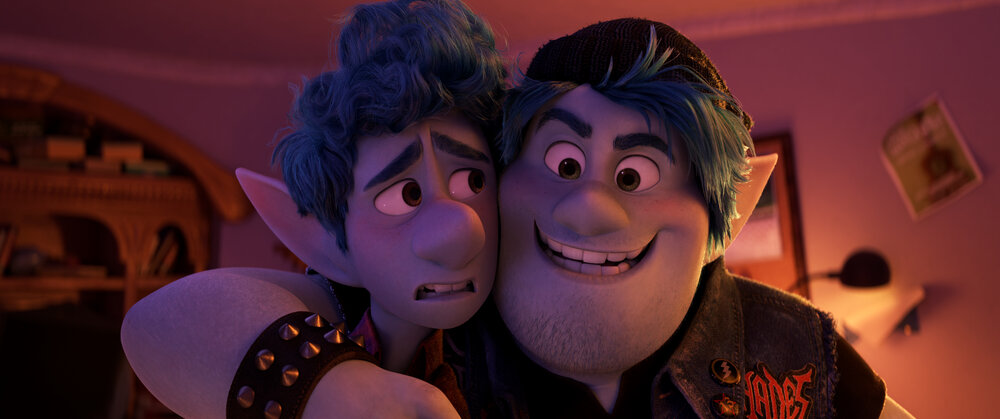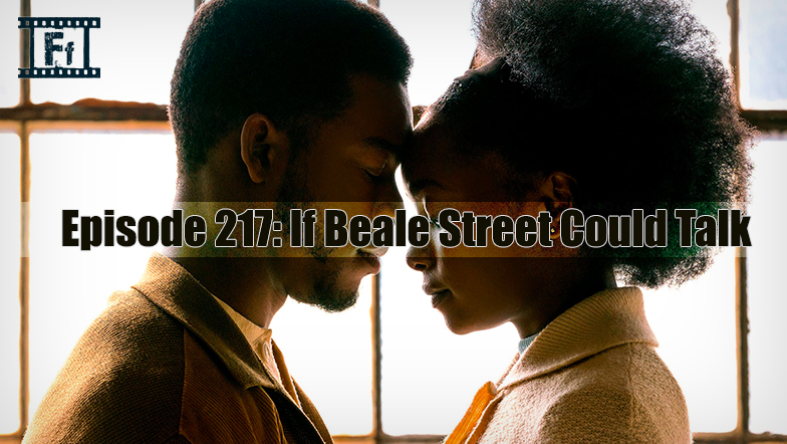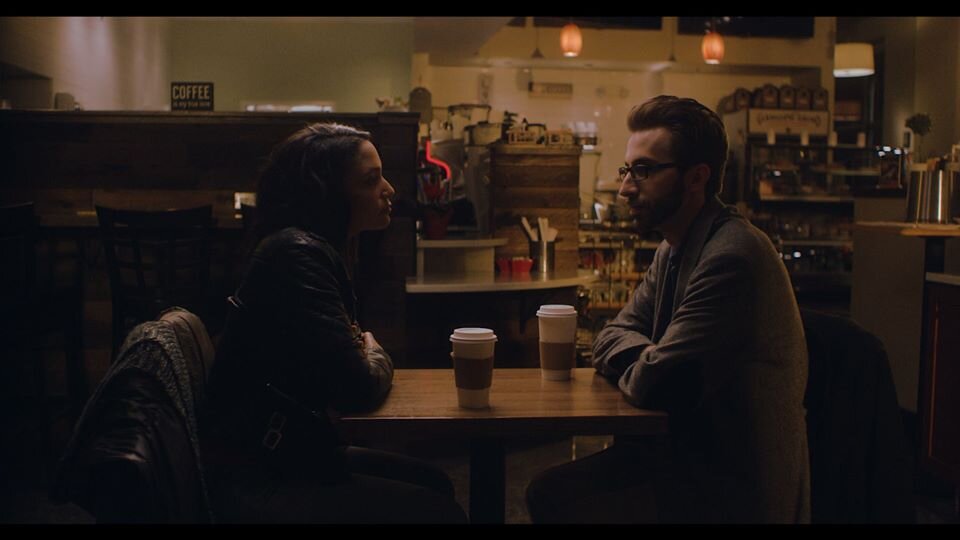
(Image courtesy of Oscilloscope and Quiver Distribution)
RUN THIS TOWN-- 3 STARS
Behind every political monster has a staff of underlings who have stories to tell and permanent stains on their resumes. More often than not, unless they are a featured mouthpiece or the eventual public whistle-blower, we don’t really see these people, even when we know they are there. Across the guarded podiums, pushy microphones, and invasive cameras are also the faceless by-lines of cub reporters trying to break stories and make a name for themselves. They too are dependent on the grinding political machine. Run This Town, an alum of the 2019 SXSW Film Festival, gives faces and voices to unfortunate minions and nobodies tied to the late and former mayor of Toronto mayor Rob Ford.
This shrewdly movie leaves the monster in the background and highlights the eager and opportunistic help. After a quick primer of archival footage, we meet a cadre of subordinates filling the council chamber seats of their political bosses after hours. They are crushing beers and challenging each other with practice lobs of schemes to spin. The king of this court is Kamal, the special assistant to the mayor, played by Aladdin discovery Mena Massoud. Rapid-fire Sorkin-esque dialogue framed by split-screen shooting and editing shows the smoothly acidic, yet pragmatic guile of Kamal and this crew, none of which are likely over the age of 30.
With a braggadocios “they don’t call us special assistants for nothing,” what was done in mock here becomes their day-to-day livelihood in public trailing the rotund, sweaty, and explosive Rob Ford. Looming in the wild and clueless periphery, the mayor is played an unrecognizable Damian Lewis of Homeland. Outstanding prosthetic makeup from department head and It makeup artist Emily O’Quinn and designers Steve Newburn and Neil Morrill (Shazam! And Suicide Squad) molds the actor into the rough-edged sinner who sees himself as a man-of-the-people do-gooder when he’s actually a raging addict and philanderer.
But that’s the boss, and you don’t cross the boss. Smashing opposition, combating scandal, and dodging social media pursuits has become the livelihood of all in Ford’s inner circle of handlers. It’s a choice paycheck, but one that costs integrity, as noted when a jaded law degree holder named Ashley (Nina Dobrev) is brought in as a new hire to swim in these murky waters.
Parallel to Kamal’s cynicism of misinformation is another twenty-something trying to squeeze virtue and confidence from the truth instead. Bram (Ben Platt of Pitch Perfect) is a mossy green journalism grad who earns a job with The Record writing bottom-of-the-roster list pieces for his tired desk editor David (Scott Speedman) and to the disapproval of his pushy parents. Idealist to a fault, Bram is a squirmy, dithering bumbler, and Platt overplays those wussy nerves every chance he gets as a foil to the Massoud’s suave slants. When he chases a possibly incendiary story of Ford’s recorded crack cocaine use, entangled sources from the mayor’s office and a pair of detectives (Hamza Haq and long-lost Ally McBeal star Gil Bellows) come sniffing around.
LESSON #1: THE DESPERATION CONNECTED TO EARNING AND KEEPING A PROMINENT JOB-- Two halves between Kamal and Bram are both struggling. The reporter is at the bottom looking up and the political puppeteer is on top peering down. Working for a powerful mayor at this level is quite the springboard for a young person, as is getting the chance to hop up the ladder to pitch and scoop a legitimate journalism assignment for a name publication. However, the height of career failure is high for both sides in Run This Town. Keeping your job overshadows the CYA of “cover your ass” and that potential calamity is even higher for a woman like Ashley.
LESSON #2: WHEN YOU HAVE A STORY-- For Bram, the question is validating all of the rumors and misinformation for what is being presented. For Kamal and his office, the same possible incident is measured for any needed damage control. One is untangling, the other is twisting, and the yarn in question is the worthiness and clarity of the truth. This chase slots Run This Town as an highly off-beat and intriguing scandal and journalism flick.
LESSON #3: WHEN YOU DON’T HAVE A STORY-- The rub of it all becomes the words used, between both spoken statements and printed copy. Those stabbing and snappy words come from debuting writer-director Ricky Tollman. Free speech, lacking facts, and slanted coverage allow spin which can flush a bad thing away, leaving the pursuer with nothing to corroborate or publish. Poor moves and bumbling the channels of reporting will cost stories as well. What destroys spin is when the victimizing and crossed lines add up or go too far, even against the aforementioned desperation of forced career loyalty.
The style is present in Run This Town to be a modern homage to the slow-boil political thrillers of the 1970s. The punchy music from debuting Ali Shaheed Muhammad and Adrian Younge (Black Dynamite) creates a sharp tone to the kitschy visual motifs that include clever screen-filled hidden letters of the opening and closing credits. The multi-point cinematography by Nick Haight (Clara) is top-notch. Lit often and appropriately by fluorescent isolation or bar-lit seediness, Haight’s rotating establishing shots and pinching zooms pump the peril fueled by kinetic editing by emerging talent Sandy Pereira. Their combined split-screen effect creates an energetic film experience, but that approach is slowed and eventually abandoned by the end. That pacing and presentation would have done wonders if kept the entire film.
The narrative impact of Run This Town veers closer to Lesson #3 than Lesson #2. Taking this background route is a far more unique approach to an expose than documenting the main man himself and all of the deplorable behavior connected to him. The professional high-wire creates and includes more character opportunities than a single focus. That said, there’s a loosey-goosey grip on this because, no matter what, the story is still Rob Ford. As compelling as Massoud and Dobrov are, the business of true suspense and menace picks up when Lewis makes his appearances. A film wanting to be heavy needed more of its heavy.

LOGO DESIGNED BY MEENTS ILLUSTRATED (#864)
from REVIEW BLOG - Every Movie Has a Lesson https://ift.tt/38zE06e

























